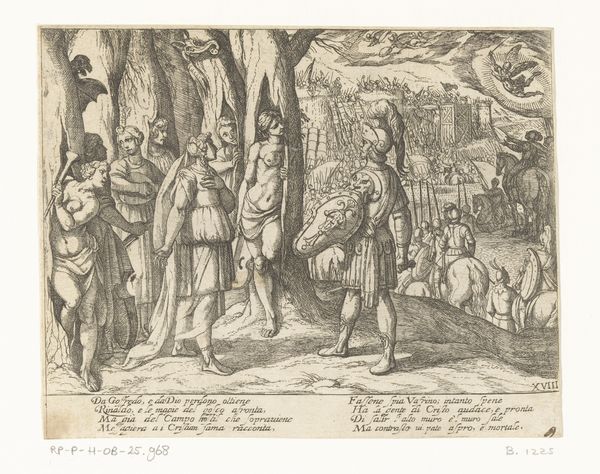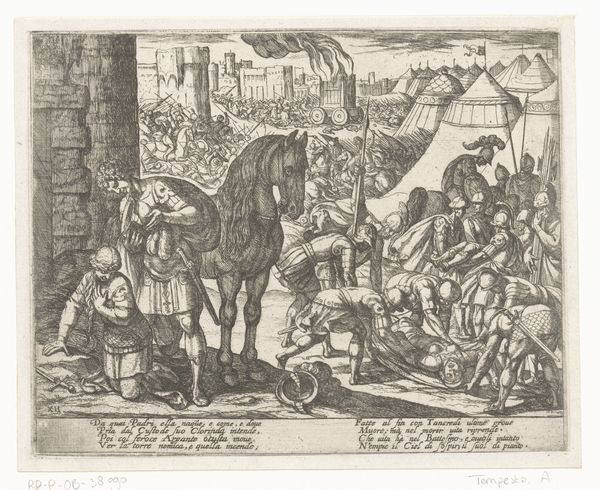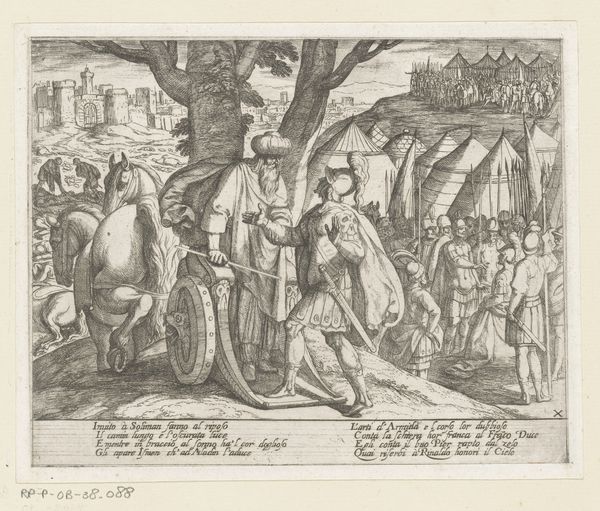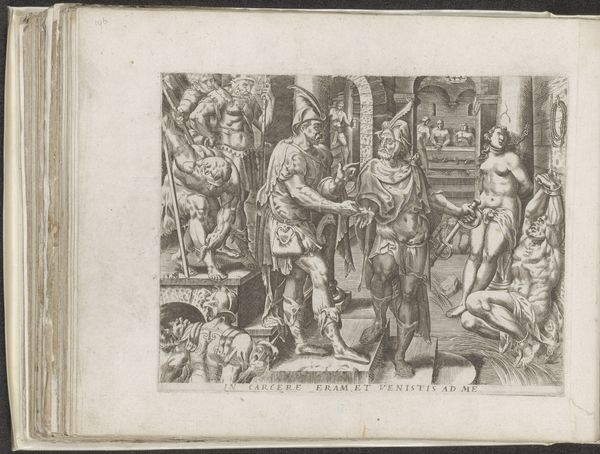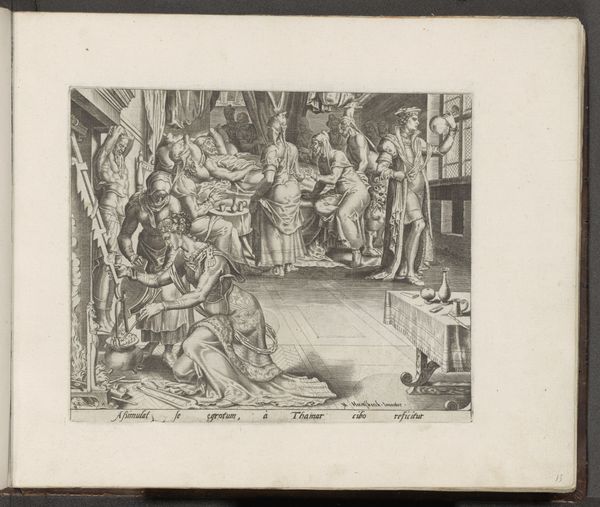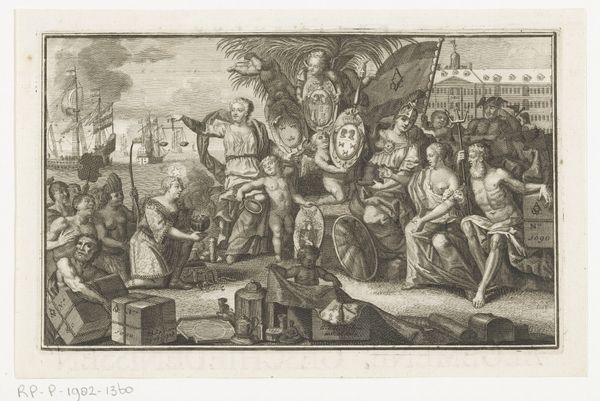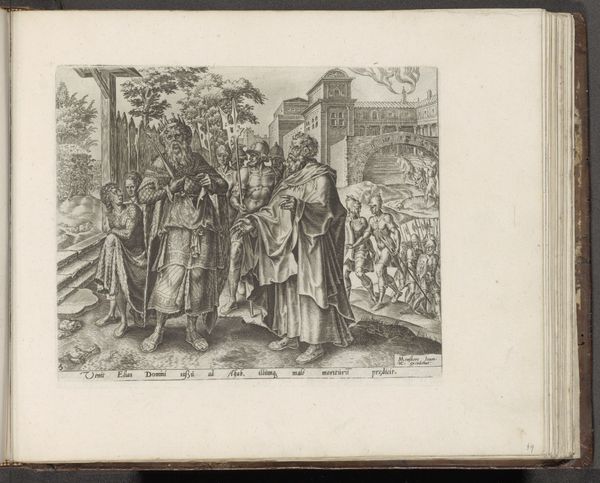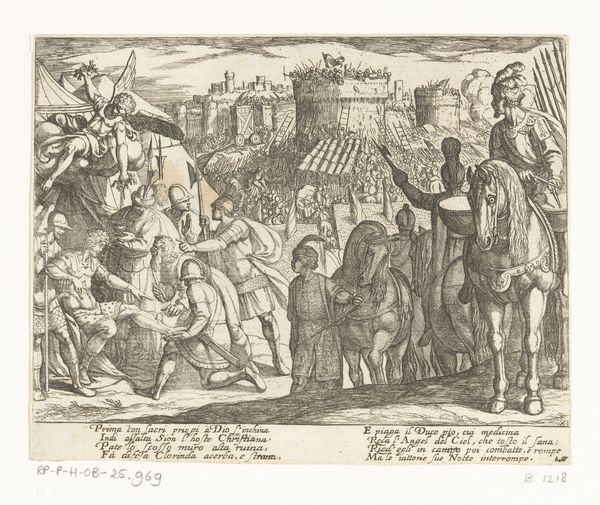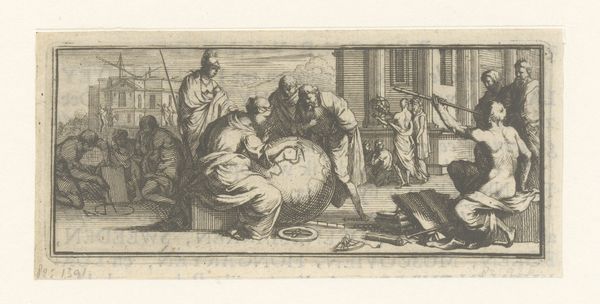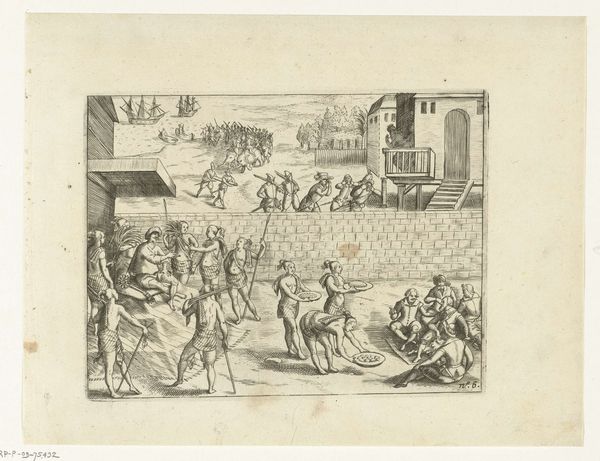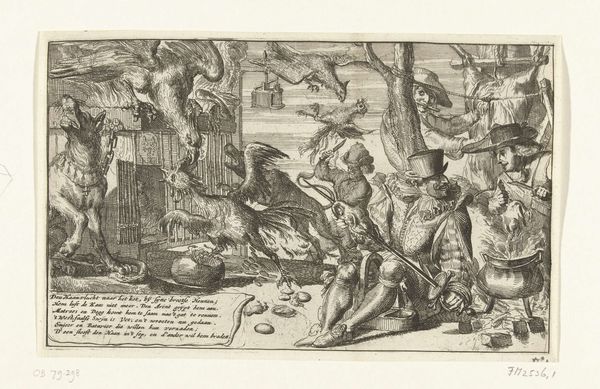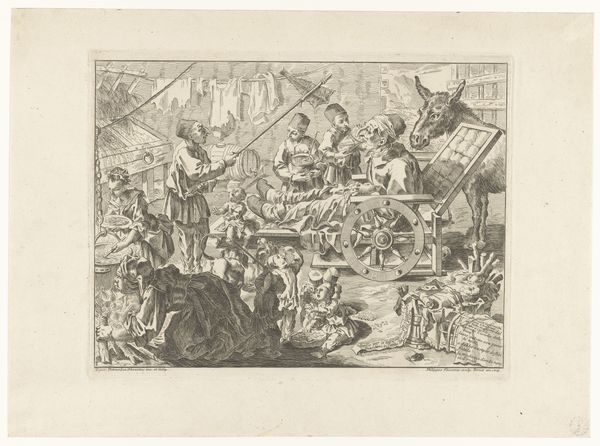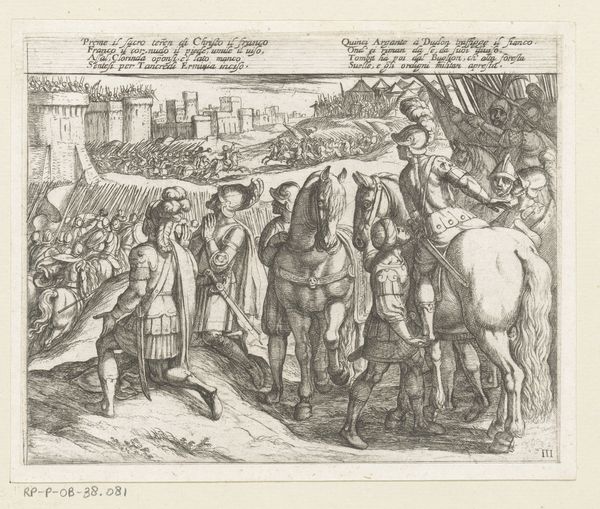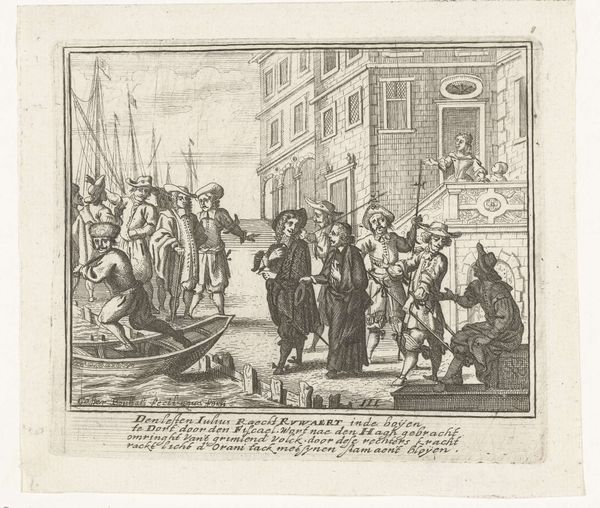
Illustratie bij Canto VII van Tasso's 'Gerusalemme Liberata' 1565 - 1630
0:00
0:00
antoniotempesta
Rijksmuseum
drawing, print, engraving
#
drawing
# print
#
pen illustration
#
pen-ink sketch
#
pen work
#
history-painting
#
italian-renaissance
#
engraving
Dimensions: height 145 mm, width 184 mm
Copyright: Rijks Museum: Open Domain
This illustration of a scene from Tasso’s ‘Gerusalemme Liberata’ was made by Antonio Tempesta sometime before 1630, using the printmaking technique of etching. In etching, a metal plate is coated with a waxy ground. The artist then scratches into this surface with a needle, exposing the metal. When the plate is bathed in acid, an image is bitten into the metal wherever these lines have been drawn. The plate is then inked and printed. Tempesta’s etching demonstrates the great precision possible with this technique. The fineness of the lines allows for complex shading and a high level of detail. The figures and landscape are rendered with a remarkable economy of means. This speaks to Tempesta’s skill as a draughtsman, but also to the increasing demand for prints in early modern Europe. Etching, like engraving, allowed for the relatively quick and inexpensive reproduction of images, which could then be circulated widely. Considering this print, it is useful to remember that even so-called ‘fine art’ objects owe their existence to industrial processes, and fit within a wider cycle of labor, politics, and consumption.
Comments
No comments
Be the first to comment and join the conversation on the ultimate creative platform.
